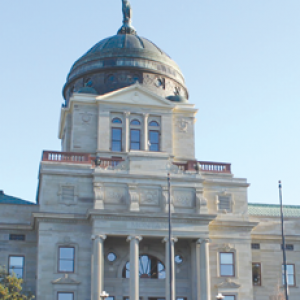Commercial
Bethlehem Evangelical Lutheran/ Sprague Construction Roofing Division, 10th St W, Com Fence/Roof/Siding, $23,387
Rocky Mountain College/ Air Controls Billings Inc., 1511 Poly Dr, Com Remodel, $700,000
Triangle H Land & Livestock/ NCI. 1385 Hardrock Ln, Com Remodel, $30,000
Heather Kavran/ Wagenhals Enterprises Inc, 27 Shiloh Rd, Com Remodel – Change In Use, $70,000
Western Sky Billings LLC/ Taylor Electric Inc, 925 S 48th St W, Electrical Permit Commercial, $200,837
KCWD Limited Partnership/ Lennick Bros. Roofing & Sheetmetal, 123 N 18th St, Com Fence/Roof/Siding $15,000
Pat Emerson Living Trust/ Finishing Touch Exteriors Inc, 6 Almadin Ln, Com Fence/Roof/Siding, $162,080
MLZ LLP/ Jorden Construction, 182 S 32nd St W, Com Remodel, $6,000
John Bonner/ All Around Construction Of Gf, 1313 Central Ave, Com Remodel, $120,000
Rajon Properties, LLC/ C’s Construction of Billings, 205 N 23rd St, Com Remodel, $42,270
Todd Denowh/ Tailwind Management LLC, 320 N 17th St, Com Remodel – Change In Use, $281,518
Lana M Craig Trust/ J & T Roofing Llp, 920 Central Ave, Com Fence/Roof/Siding, $36,000
236 N 9th St Trust/ Neumann Construction, 50 24th St W, Com New Restaurant/Casino/Bar, $800,000
Jones, Edward E & Doris L Trust/ Burnett Enterprises Llc, 1032 N 29th St, Com Remodel, $174,550
Black Hills Federal Credit Union/ Langlas & Assoc., Inc., 4002 Montana Sapphire Dr, Com Remodel, $660,000
Darcey Frewin/ Carter Construction, 300 S 24th St W, Com Remodel, $50,000
Residential
Schott/ Mueller Contracting, 3035 Donegal Ct, Res New Single Family, $325,460
N/A/ Infinity Home LLC, 503 Montecito Ave, Res New Single Family, $244,996
John Haman/ HD Building Inc, 1410 Anchor Ave, Res New Single Family, $234,889
Trails West Homes LLC/ Trails West Homes LLC, 5733 Bear Track Trl, Res New Single Family, $227,838
Dirk Arnold Construction/ Dirk Arnold Construction, 1312 Emma Ave, Res New Single Family, $340,000
McCall Development Inc/ McCall Development, 1930 Annas Garden Ln, Res New Single Family, $344,569
Kenneth Harbaugh/ King’s Mountain Builders Inc, 3239 McMasters Rd, Res New Single Family, $550,000
Mike Christensen/Michael Christensen Homes, 4723 Talking Tree Dr, Res New Two Family, $396,632



